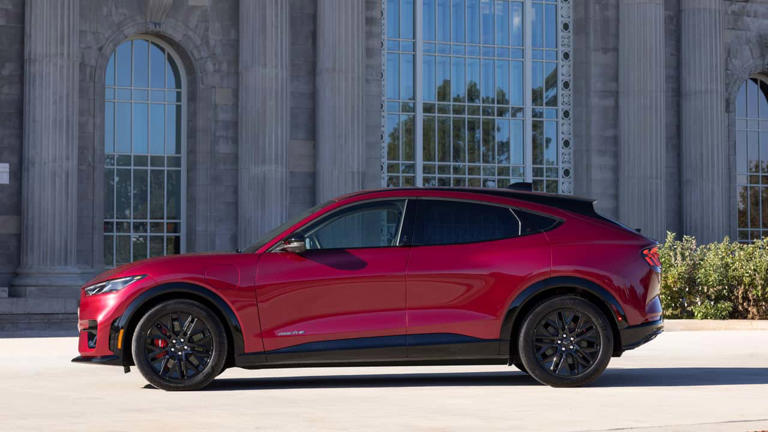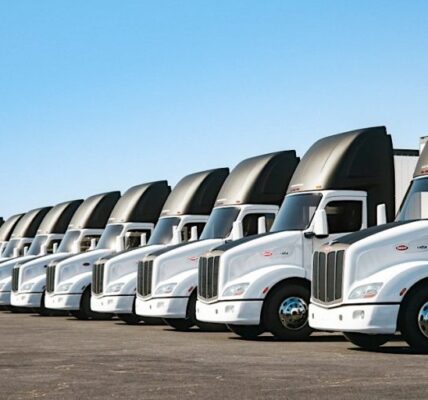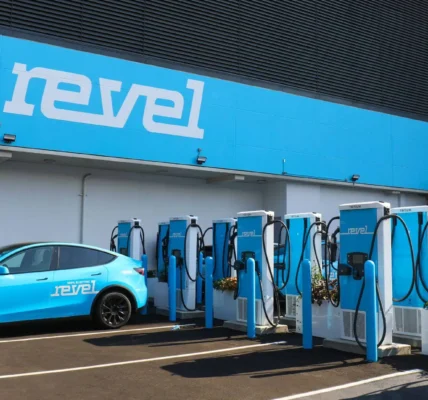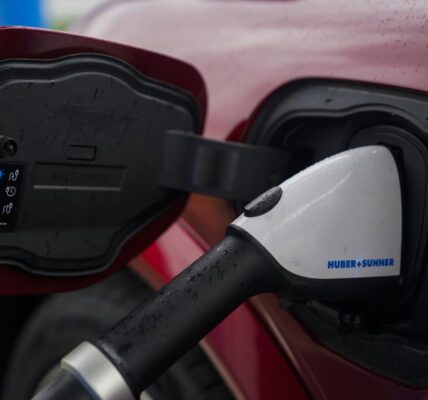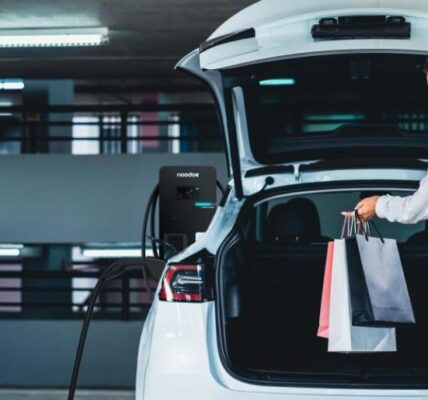The consumer-facing side of electric vehicles paints a limited picture of what’s happening in the broader automotive industry. But when you glance behind the scenes, things start appearing far clearer, to a point where it’s pretty evident that the future of road transport is battery-powered. A big part of what’s happening backstage is making those batteries right here, on American soil.
Korean battery maker LG Energy Solution announced recently that it reached an agreement with Ford to move production of the Ford Mustang Mach-E’s batteries from Poland to Michigan starting next year. Instead, the LGES Poland factory will prioritize producing batteries for Ford’s commercial vans sold in the U.K. and the European Union.
Beginning in 2026, with a contract period ranging between four to six years, LGES expects to produce some 109 gigawatt hours of batteries for Ford’s electric vans. On the other hand, Mach-E batteries will be made at a plant in Michigan. That means the electric crossover might soon re-qualify for the federal tax credits, which it lost this year when rules around battery sourcing changed. After the U.S. Treasury’s strict battery sourcing requirements were implemented this January, the Mach-E no longer qualified for the federal tax credit. To qualify for half the credit ($3,750), at least 50% of the battery’s critical minerals should be sourced from North America or from countries the U.S. has free trade agreements with.
An EV can qualify for the full $7,500 credit if it also meets the battery components requirement. The 2025 model is indeed cheaper by about $3,500, Ford said last week. It’s unclear if that price drop is due to local battery manufacturing linked to this LGES deal.
But even without the tax credit, the Mustang Mach-E is the most popular non-Tesla EV in the U.S. It was the fourth best-selling EV in the third quarter, behind the Tesla Cybertruck.Ford and LGES can also take advantage of the generous federal incentives provided by Section 45X (Advanced Manufacturing Production Credit) of the Inflation Reduction Act. This allows locally-made battery cells to qualify for a $35 credit per kilowatt-hour, $10 per kWh for modules, and $45 per kWh if the modules don’t use cells.
The landmark legislation has turbocharged battery production in North America, making it the world’s fastest-growing battery manufacturing region. LGES and Honda are constructing a joint venture plant in Jeffersonville, Ohio. Another LGES joint venture battery plant in Georgia will supply batteries to the upcoming Hyundai Metaplant in Bryan County.


